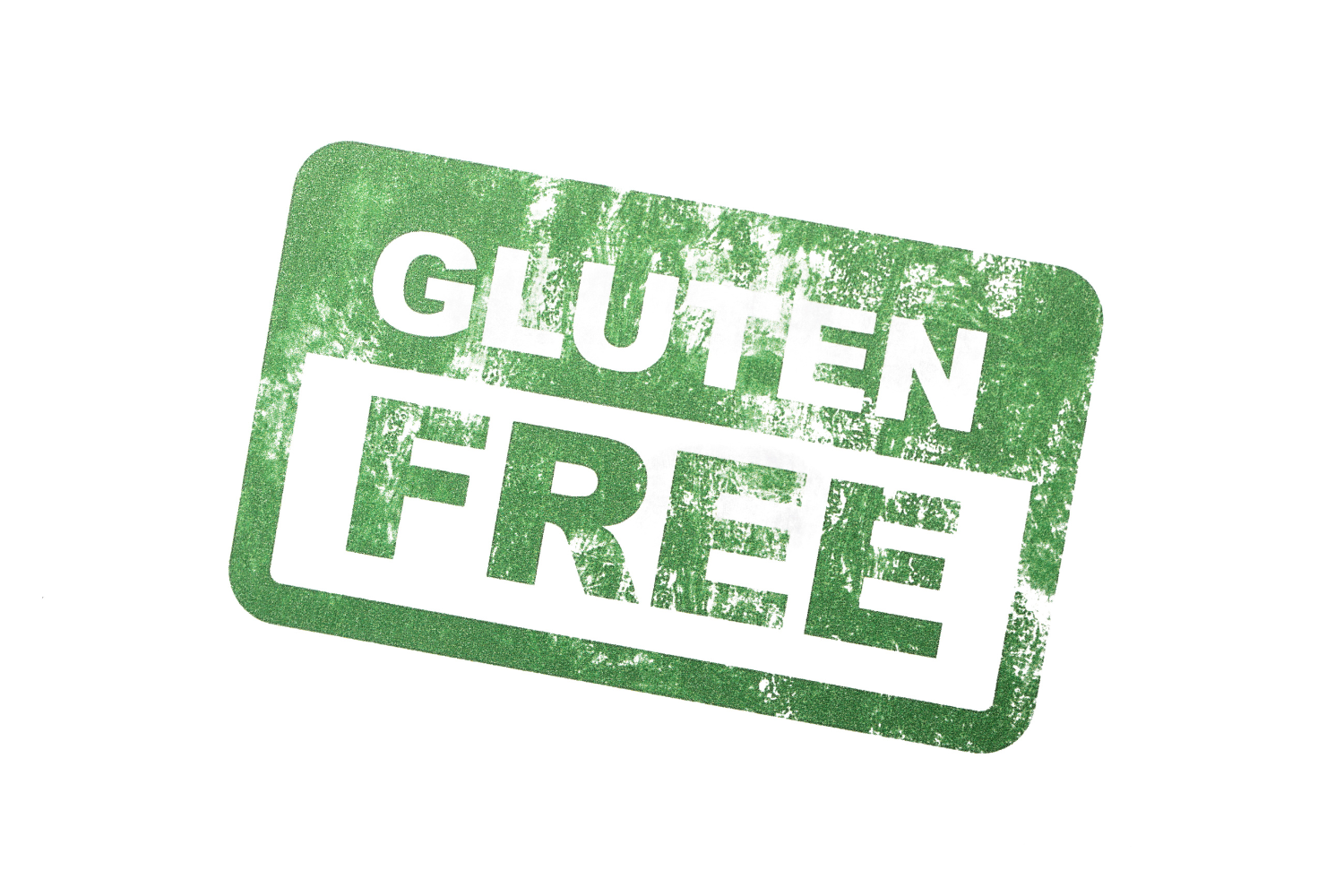The demand for gluten-free supplements is growing as more consumers become aware of gluten intolerance, celiac disease, and the benefits of clean-label products. For individuals managing conditions like celiac disease or non-celiac gluten sensitivity, gluten-free supplements aim to provide essential nutrients while minimizing the risk of adverse reactions for individuals avoiding gluten.
Health-conscious consumers also seek these products as part of a healthy diet focused on naturally gluten-free foods and alternatives. Developing high-quality, labeled gluten-free dietary supplements can help brands build trust, cater to specific dietary needs, and strengthen customer loyalty in a competitive market.
Table of Contents
ToggleUnderstanding Gluten-Free Supplements
Gluten-free supplements are dietary products without gluten-containing ingredients such as wheat gluten, barley, or rye. These supplements are formulated to help individuals with celiac disease, gluten intolerance, or non-celiac gluten sensitivity meet their nutritional needs while minimizing the risk of gluten-related issues.
These products are vital in addressing nutritional gaps caused by dietary restrictions. A strict gluten-free diet can sometimes limit access to naturally gluten-free ingredients, leading to deficiencies in key nutrients. Gluten-free supplements may help address potential nutritional gaps and support health for those on a lifelong gluten-free diet.

Common Use Cases
Gluten-free supplements serve various needs for individuals and health-conscious consumers:
- Providing safe, gluten-free options for general wellness.
- Supporting individuals with celiac disease or gluten sensitivity in meeting their nutritional needs.
- Enhancing digestion, energy, and immunity in gluten-sensitive populations.
Common Types of Gluten-Free Supplements
Gluten-free supplements are available in a variety of forms to cater to different preferences and health goals:
- Capsules/Tablets: Made with gluten-free binders and fillers to ensure safety for those avoiding gluten.
- Powders: Designed for mixing into water or smoothies, often featuring clean-label proteins, greens blends, or naturally gluten-free ingredients.
- Gummies: A chewable and flavorful option that avoids gluten-containing stabilizers, appealing to a wide range of consumers.
- Liquid Supplements: These are easy-to-absorb solutions for nutrients like vitamin D or iron, providing convenience for individuals with specific deficiencies.
Benefits of Offering Gluten-Free Supplements
Gluten-free supplements allow brands to meet the growing demand for clean-label, allergen-free nutrition. These products cater to diverse consumer needs while promoting health and wellness.
Addressing Consumer Demand for Gluten-Free Products
An increasing number of individuals are turning to gluten-free diets due to celiac disease, gluten intolerance, and non-celiac gluten sensitivity. Others adopt a gluten-free lifestyle to improve digestion, manage weight, or achieve health benefits. This shift has led to a surge in demand for gluten-free foods and supplements that align with their dietary needs.
Gluten-free supplements aim to provide options that align with health-conscious consumers’ preferences for allergen-free and gluten-free products. Clean-label formulations featuring naturally gluten-free ingredients appeal to individuals seeking high-quality nutrition without gluten-containing grains, offering peace of mind and health benefits.
Expanding Product Lines for Inclusivity
Adding gluten-free supplements to your product line creates an opportunity to appeal to a broader audience, including those following other dietary patterns like vegan or keto lifestyles. These supplements naturally complement diverse health-focused offerings, helping your brand cater to evolving consumer preferences.
Brands can also bundle gluten-free supplements with other wellness products, such as digestive health aids or energy boosters, to provide comprehensive solutions. This approach enhances value for customers and positions your brand as an inclusive leader in health and wellness.
Building Brand Trust with Certified Gluten-Free Products
Certifications from trusted third-party organizations ensure gluten-free compliance and boost consumer confidence. Displaying a certified gluten-free label shows that your products meet strict standards, which is especially important for individuals with celiac disease or gluten sensitivity.
Clean-label formulations help demonstrate a commitment to transparency and product quality. Highlighting naturally gluten-free ingredients and avoiding gluten contamination builds credibility and fosters long-term customer loyalty.
Key Ingredients in Gluten-Free Supplements
Creating effective gluten-free supplements starts with carefully selecting ingredients that support health and align with dietary restrictions.
Gluten-Free Protein Sources
Pea protein is a plant-based option ideal for muscle recovery and general nutrition. It is naturally gluten-free and suitable for those with dietary restrictions.
Brown rice protein complements pea protein by providing a balanced amino acid profile. These two proteins form a complete protein source, perfect for gluten-free supplements targeting fitness or general wellness.
Essential Vitamins and Minerals
Some individuals on a gluten-free diet may benefit from additional vitamins and minerals to address potential nutritional gaps:
- Vitamin D3: Supports bone health and immunity and is often necessary for individuals with gluten sensitivity.
- Iron: Helps address potential deficiencies some individuals with celiac disease or gluten intolerance may experience.
- Calcium: Crucial for maintaining bone density and preventing osteoporosis, particularly for those with celiac disease.
Digestive and Gut Health Enhancers
Probiotics may support gut health and improve nutrient absorption, particularly for individuals with gluten sensitivity. They can be particularly beneficial for individuals with celiac disease or gluten sensitivity, who often experience gastrointestinal symptoms.
Digestive enzymes may aid in overall digestion and help reduce discomfort from specific food intolerances. These enzymes enhance overall digestion, making them valuable to gluten-free supplements.
Antioxidants and Superfoods
Turmeric, specifically its active compound curcumin, is studied for its potential anti-inflammatory properties and overall health benefits. Its antioxidant properties make it a popular ingredient in gluten-free dietary supplements.
Spirulina is a nutrient-dense superfood rich in vitamins, minerals, and antioxidants. It adds value to gluten-free products by providing a natural source of essential nutrients, appealing to health-conscious consumers.

Steps for Nutrition Brands to Develop Gluten-Free Supplements
Developing gluten-free supplements requires a strategic approach to meet consumer needs and ensure product quality. Following these steps can help nutrition brands create effective, marketable products.
Conduct Market Research to Identify Consumer Needs
Identifying your target audience is the first step. Focus on demographics like individuals with celiac disease, non-celiac gluten sensitivity, or wellness enthusiasts who prefer gluten-free products for a healthy lifestyle. Understanding their needs allows you to design supplements that align with their health goals.
Researching trends in gluten-free foods and supplements is equally important. Look for features like clean-label certifications, allergen-free formulations, and naturally gluten-free ingredients. Stay informed about consumer preferences to create products that resonate with your audience.
Source High-Quality, Gluten-Free Ingredients
Sourcing certified gluten-free, non-GMO, and organic ingredients is essential to creating trusted products. Partner with suppliers, prioritizing quality and transparency, ensuring their ingredients are safe and gluten-free.
Ingredients should meet regulatory standards and undergo third-party testing to confirm their purity and safety. This guarantees that your products are free from gluten contamination and suitable for individuals with strict dietary requirements.
Formulate for Comprehensive Nutritional Support
Combining ingredients that enhance gut health, such as probiotics and digestive enzymes, is a useful strategy. These components address common challenges for people with gluten sensitivity, promoting digestion and nutrient absorption.
Consider formulating specialized products for energy, immunity, or bone health. Tailoring supplements to meet specific health needs ensures they stand out in the competitive gluten-free market.
Design Packaging and Labels for Gluten-Free Appeal
Clear and informative packaging helps consumers quickly identify your product as gluten-free. Highlight certifications like “Certified Gluten-Free,” “Non-GMO,” and “USDA Organic” to build trust and ensure transparency.
Opt for clean, accessible designs that communicate your product’s gluten-free nature. Include easy-to-read labels that emphasize health benefits and compliance with dietary restrictions.
Launch and Market Strategically
Building awareness requires educating consumers about the benefits of gluten-free supplements. Use blogs, videos, and social media to highlight how your products support digestion, immunity, and overall wellness.
Offering free samples or introductory bundles can encourage first-time purchases. This approach allows potential customers to experience the quality and effectiveness of your gluten-free supplements, increasing the likelihood of repeat business.
Marketing Strategies for Gluten-Free Supplements
Effectively marketing gluten-free supplements requires education, collaboration, and value-driven promotions to attract and retain customers.
Educate Consumers About Gluten-Free Nutrition
Sharing educational content is essential for raising awareness. Create blogs or videos that explain the health benefits of gluten-free supplements, focusing on their role in digestion, immunity, and general wellness.
Use infographics to showcase the science-backed benefits of key ingredients like probiotics, turmeric, or vitamin D3. Visually engaging content helps consumers understand why your supplements are a great choice.
Partner with Gluten-Free Influencers and Experts
Collaborating with gluten-free bloggers, nutritionists, or wellness influencers can boost your brand’s visibility. These experts can share product reviews, usage tips, and testimonials to connect authentically with their audience.
Highlight real-life success stories to build trust and credibility. Personal testimonials from individuals with celiac disease or gluten sensitivity demonstrate the tangible benefits of your gluten-free supplements.
Offer Value with Bundles and Subscriptions
Creating product bundles that include complementary gluten-free items, such as protein powders or digestive enzymes, adds value for customers. Bundles provide a comprehensive approach to health and wellness.
Subscription discounts encourage long-term use and build customer loyalty. Offering convenience and cost savings ensures consumers consistently choose your brand for their gluten-free supplement needs.
Meeting the Demand for Gluten-Free Supplements
The demand for gluten-free supplements continues to grow as consumers seek inclusive, allergen-free options to support their wellness routines. Nutrition brands can meet this need by focusing on clean, certified, evidence-based formulations prioritizing safety and transparency. High-quality, labeled gluten-free supplements build trust and loyalty among gluten-sensitive consumers, offering a unique opportunity to stand out in a competitive market.
Frequently Asked Questions
What certifications should gluten-free supplements have?
Certified Gluten-Free, Non-GMO, USDA Organic, and allergen-free certifications are essential.
How long does it take to develop gluten-free supplements?
Typically 6–12 months, including formulation, testing, and regulatory approval.
What are the most popular ingredients in gluten-free supplements?
Pea protein, probiotics, vitamin D3, and turmeric are common choices.
Are gluten-free supplements safe for daily use?
Most are safe when used as directed, but formulations should adhere to recommended dosages.
Can gluten-free supplements be combined with other dietary-focused products?
Yes, they pair well with vegan, keto-friendly, or gut health supplements for comprehensive wellness solutions.
References
- Gluten Intolerance Group. (n.d.). The GFCO Certified Mark Means Safely Gluten-Free. https://gluten.org/new-gfco-certification-mark/
- National Institute of Diabetes and Digestive and Kidney Diseases. (2020). Definition & Facts for Celiac Disease. https://www.niddk.nih.gov/health-information/digestive-diseases/celiac-disease/definition-facts
- National Institutes of Health Office of Dietary Supplements. (2024). Calcium – Health Professional Fact Sheet. https://ods.od.nih.gov/factsheets/Calcium-HealthProfessional/
- National Institutes of Health Office of Dietary Supplements. (2024). Vitamin D – Health Professional Fact Sheet. https://ods.od.nih.gov/factsheets/VitaminD-HealthProfessional/
- U.S. Food and Drug Administration. (2023). Dietary Supplements: What You Need to Know. https://ods.od.nih.gov/factsheets/WYNTK-Consumer/
- U.S. Food and Drug Administration. (2022). Gluten-Free Labeling of Foods. https://www.fda.gov/food/nutrition-food-labeling-and-critical-foods/gluten-free-labeling-foods
- U.S. Food and Drug Administration. (2022). Questions and Answers on the Gluten-Free Food Labeling Final Rule. https://www.fda.gov/food/nutrition-food-labeling-and-critical-foods/questions-and-answers-gluten-free-food-labeling-final-rule




